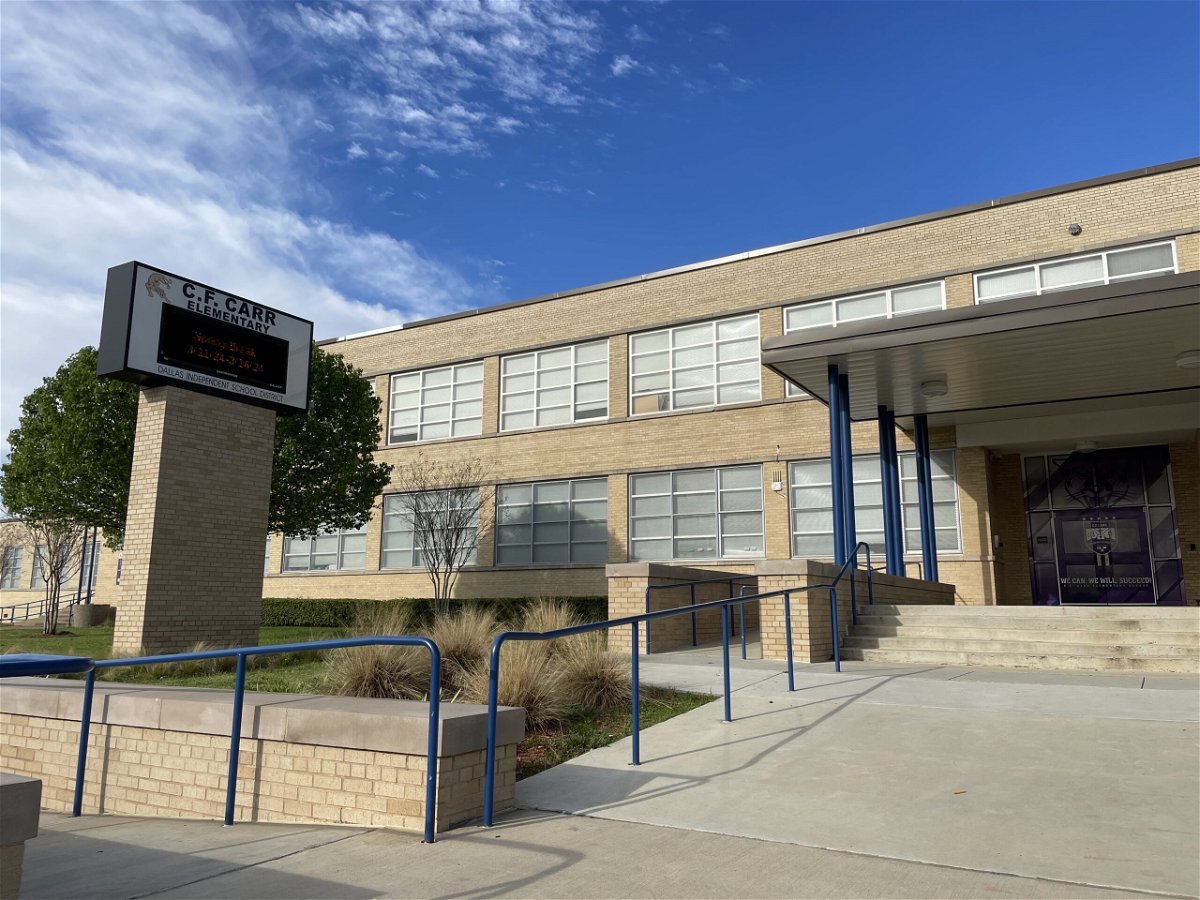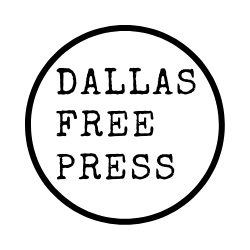Until January 2024, anyone browsing Dallas ISD’s 2015 bond websites would have found Dr. Martin Luther King Jr. Arts Academy among the schools that received funding for improvements.
But bond dollars weren’t allocated to that campus in 2015. Money set aside to construct a dance studio, maker space and choir and band classrooms came from the district’s 2020 bond.
Dallas ISD only corrected the mistake, moving the South Dallas school of choice to its website tracking 2020 bond projects, after Dallas Free Press asked a question about a discrepancy on the 2015 bond website. (The district has since taken down its 2015 bond website, though the bond dashboard is still up.)
Exactly how much money has been or will be spent on improvements at the arts magnet is hard to determine. This project page estimates the cost of renovations to be $9 million. In a 2021 virtual ribbon-cutting ceremony, trustee Justin Henry, whose district includes the school, echoed the $9 million figure. But the 2020 Bond Dashboard, which the district says contains the complete list of 2020 bond projects, shows a total budget of more than $34 million.
Communities work hard to get bond funding allocated to their schools. And taxpayer dollars — $5 billion since 2015 — pay for those renovations, upgrades and new school construction.
Dallas Free Press wanted to provide an update on bond projects at South Dallas and West Dallas schools. Using the 2015 and 2020 bond dashboards and project pages, we gathered information about total budgets and construction timelines.
We found that the issues with the district’s data reporting weren’t unique to Martin Luther King, Jr. Arts Academy.
Searching for accurate Dallas ISD bond data

Different Dallas ISD websites showed different information about how much money the school district was spending at campuses and what the money was purchasing.
To sort it out, Dallas Free Press contacted the school district’s media relations team, which handles journalists’ questions. We asked specific questions about the 2015 bond, and our questions were answered within a few weeks.
As we investigated further, we had additional questions about both the 2015 and 2020 bonds. Online bond dashboards showed that many campuses, such as West Dallas STEM School, Lincoln High School, Paul Dunbar Learning Center and C.F. Carr Elementary, received funding in 2015 and 2020. Was that accurate? And how was the money, sometimes tens of millions of dollars, spent?
We sent more questions to the media relations team. A week and a half later, we heard from the district: The bond team had worked hard to answer the first set of questions, and they just weren’t sure when they would be able to get to the second set.
The information we requested should be available online; even Dallas ISD has acknowledged that.
One frequently asked question about the 2020 bond, according to this Dallas ISD website, is: “How is the public going to know what campus will be getting a part of the bond money?”
The answer: “If the proposal is approved, a detailed list of projects and costs will be available on the district’s website.”
Dallas ISD says the complete list can be found on the 2020 Bond Dashboard. But we discovered that the dashboard doesn’t actually contain a complete list.
For example, the dashboard shows that the “Great” James Madison High School didn’t receive any 2020 bond funding. Yet the district’s webpages indicate the school has received either $35 million or $41 million through the 2020 bond to fund upgrades and additions to athletics facilities and arts spaces, among other improvements.
It’s not just that the district has said detailed bond information will be available online. Websites dedicated to Dallas ISD’s bond have been praised publicly, including by trustee Justin Henry.
During a recent board meeting, he said: “There’s a website where you can go and look at these projects and what was promised and what’s been delivered and what will be delivered, where it’s at in the progress. I don’t think I’ve seen that before. So in the future, when you say, ‘this was supposed to be done,’ you know whether it was done or not.”
Filing a Dallas ISD open records request
We submitted an open records request to learn how much bond money was allocated to 18 South Dallas and West Dallas schools, how much money had been spent at each campus, what projects were planned for each school and the status of projects (being designed, under construction or completed, for example).
We asked for a waiver of fees when we submitted our request because we believed the information would benefit the public’s understanding of how Dallas ISD was spending billions of taxpayer dollars, which is outlined in state law.
In response to our request, Dallas ISD alerted us that the cost of 40 hours of labor to locate, compile and redact the information would be $600. There would also be an additional overhead fee of $120, resulting in a $720 total charge.
Our options are to pay the money, change our request or submit a complaint about the charges to the Texas Attorney General.
Understanding state and national ‘sunshine laws’
Requests like ours, to access government records, are made possible through legislation sometimes referred to as sunshine laws. In Texas, the legislation is Section 552.001 of the Texas Government Code, the Texas Public Information Act. It states: “… it is the policy of this state that each person is entitled, unless otherwise expressly provided by law, at all times to complete information about the affairs of government and the official acts of public officials and employees.”
In a letter included in the Texas Public Information Act Handbook, Attorney General Ken Paxton writes: “Texans have the right to monitor their government’s decision making, including spending tax dollars and exercising powers granted by the people.”
Since 2002, journalism, civic and other groups have marked a week in mid-March as Sunshine Week, a national effort to raise awareness of the importance of public records and open government.
Dallas Free Press takes advantage of sunshine laws in our reporting. Records we requested revealed that during the 2020-21 school year, about ⅓ of L.G. Pinkston High School students missed multiple days or weeks of school, or couldn’t be found. Records also shed light on how many West Dallas residents were denied for a city program designed to provide financial assistance for home repairs.
Anyone can request data from the government because we as taxpayers already have paid for that data. When Dallas Free Press makes requests, we make them on behalf of South Dallas and West Dallas neighbors as we report on community and civic issues they identify as important.
Governmental bodies may charge money for requests. This includes when a request for access to electronic information requires programming or manipulation of data, even when the information is available online.
But according to the Texas Public Information Act Handbook, “if a governmental body determines that producing the information requested is in the ‘public interest’ because it will primarily benefit the general public, the governmental body shall waive or reduce the charges.”
Dallas ISD has not waived the charges for our request, and it doesn’t appear the district reduced its charges, either.
As a small nonprofit newsroom with a lean budget, we can’t afford to pay anything more than nominal fees for records that should be open to not only newsrooms but anyone in the public under state law. But our reporting on the 2015 and 2020 bonds will continue to reflect the most accurate information available online, as the district has committed to provide.


Leave a Reply